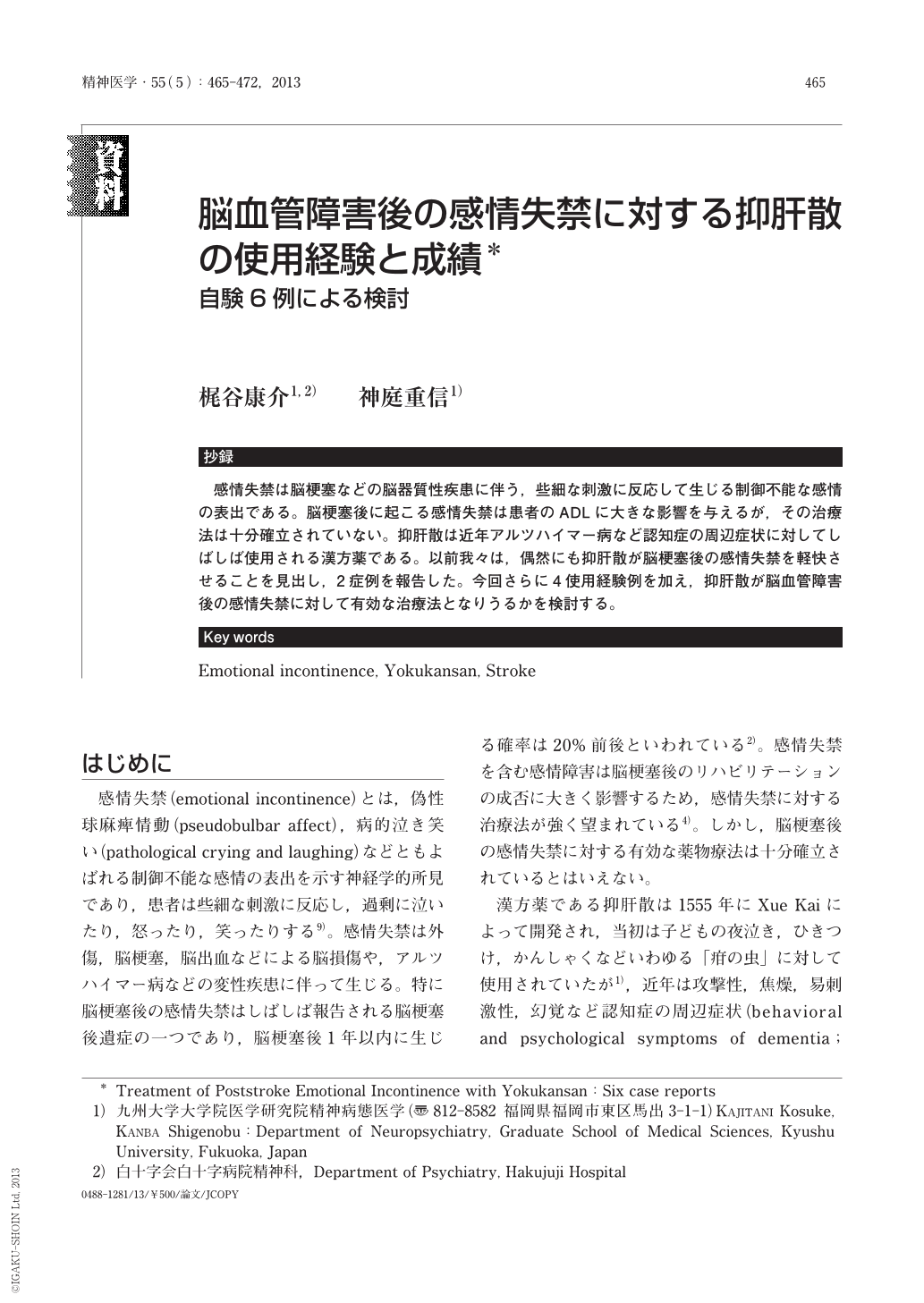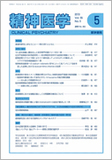Japanese
English
- 有料閲覧
- Abstract 文献概要
- 1ページ目 Look Inside
- 参考文献 Reference
抄録
感情失禁は脳梗塞などの脳器質性疾患に伴う,些細な刺激に反応して生じる制御不能な感情の表出である。脳梗塞後に起こる感情失禁は患者のADLに大きな影響を与えるが,その治療法は十分確立されていない。抑肝散は近年アルツハイマー病など認知症の周辺症状に対してしばしば使用される漢方薬である。以前我々は,偶然にも抑肝散が脳梗塞後の感情失禁を軽快させることを見出し,2症例を報告した。今回さらに4使用経験例を加え,抑肝散が脳血管障害後の感情失禁に対して有効な治療法となりうるかを検討する。
Emotional incontinence(EI)is a neurological condition that is characterized by uncontrollable episodes of crying and/or laughing that often occur in patients with neurological disorders, such as traumatic brain injury, stroke, and Alzheimer's disease. In particular, EI is one of the most frequently reported poststroke behavioral syndromes. There is a pressing need for the development of new treatments for poststroke EI because emotional disturbances, including EI, are associated with less successful outcomes of rehabilitation therapy, a decreased quality of life for patients, and a higher caregiver burden. However, no effective drug therapy for poststroke EI has yet been established. Yokukansan, which is an Asian herbal medicine(Kampo in Japanese), has been administered to patients with insomnia, irritability, and behavioral and psychological symptoms of dementia(BPSD). Herein, we present 6 poststroke EI cases who were treated with yokukansan. Our results indicate a possible new treatment for poststroke EI.

Copyright © 2013, Igaku-Shoin Ltd. All rights reserved.


